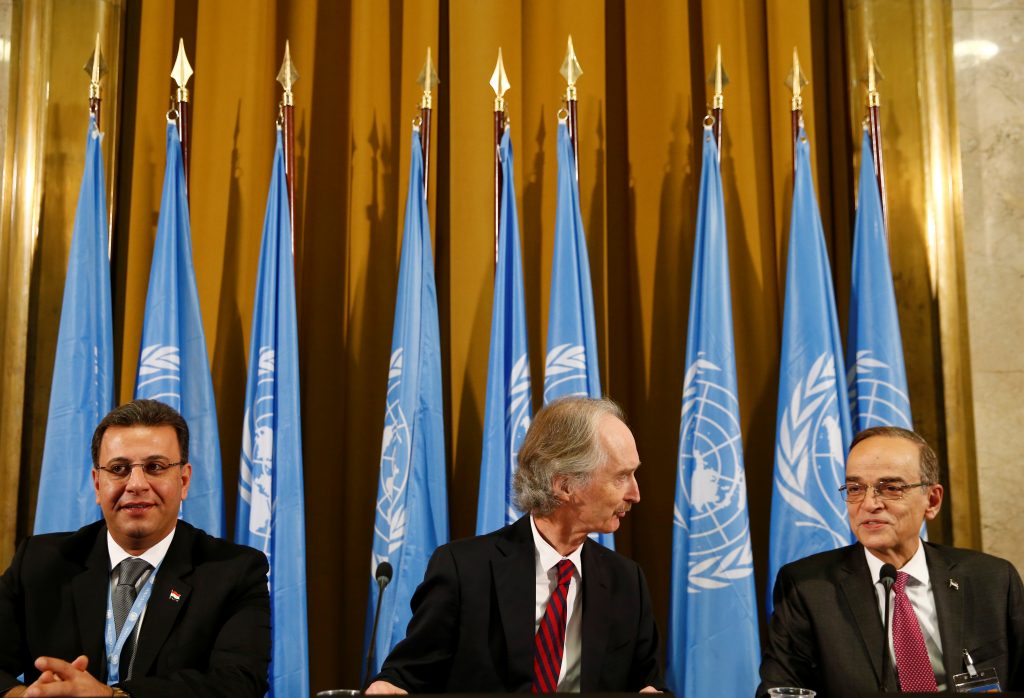
The leader of ISIS is dead. Russia now controls a former US airbase in northern Syria. Turkey is deporting ISIS members back to their European homes. The United States has seemingly given up the game in Syria and, as its troops leave, its money should follow. Continuing to provide US foreign assistance in Syria now only helps Assad and his backers in Russia and Iran, harming the very people it’s intended to help — innocent Syrians.
Over the past seven years, the United States has spent $4.7 billion within Syria on humanitarian assistance alone. That figure jumps to almost $10.5 billion when you account for war-related humanitarian aid to the surrounding countries, such as Turkey.
This aid has largely gone unnoticed, despite its significant political implications. Most US foreign assistance was intended to help displaced Syrians both within and outside the country, including the more than 2 million Syrian refugees that Turkish President Erdogan is forcibly resettling in the so-called safe zone along the Turkish-Syrian border. But it also included hundreds of millions of dollars intended for the stabilization of northeastern Syria — an area now controlled by Russia.
The government of Bashar al-Assad has long proven adept at manipulating foreign resources flowing into Syria. As I discuss in my new book, Aiding and Abetting: U.S. Foreign Assistance and State Violence, the Assad regime has harnessed United Nations humanitarian assistance as a way to provide resources to its supporters. This kept Syrian civilians caught in the crosshairs of conflict in government-controlled areas.

Humanitarian assistance — and food aid in particular — has inadvertently bolstered authoritarian regimes by acting as a subsidy. Foreign assistance frees up state resources to feed armies and buy citizens’ support. For example, during the 1980s famine in Ethiopia, Western food aid allowed the country’s dictator, Mengistu Haile Mariam, to divert almost all of the government’s resources away from feeding the starving and towards his counterinsurgency war against separatist minority groups. In 1985, Ethiopia received 1.25 million tons of food relief, but only 90,000 tons were distributed in non-government-controlled regions. Instead, hundreds of thousands of Ethiopians moved from the north and resettled in the southwest of the country, where they could pose little threat to Mengistu’s regime. Similarly, by consolidating its Syria operations in Damascus, the United Nations is ensuring that the benefits accruing to the Assad regime from humanitarian assistance will only increase.
The complex and ongoing conflict in Syria has provided some additional hard lessons for the United States. Terrorist diversion of humanitarian assistance has been a recurring problem. In February 2018, the US Agency for International Development suspended a $44.6 million food aid program in Syria after an Inspector General investigation revealed that local employees of a US-funded NGO had provided food kits to members of the terrorist group Hay’at Tahrir al-Sham. In northwest Syria, the US State Department suspended its programs due to concerns that it could not sufficiently mitigate the risk of aid diversion to one of the four designated terrorist groups operating in Syria. Operations resumed after remedial measures were put in place.
The Turkish military incursion into Syria has made matters on the ground even more complicated. Many of the humanitarian NGOs that were operating in northeastern Syria have pulled out. Combined with the retreat of Kurdish forces, who had been acting as the de facto government, a service delivery vacuum will ultimately embolden the Assad regime in re-establishing its control in the area.
The World Bank estimates that the cost of Syria’s war exceeded $226 billion between 2011 and 2016. But it’s important to remember that this costly war was of Assad’s own making. Given the current facts on the ground, the solution cannot be not more aid, which will ultimately only benefit Assad’s regime. No matter how much foreign assistance the United States provides to help rebuild parts of Syria or supply humanitarian relief to Syrians under the control of a violent, dictatorial regime, Assad and his Russian and Iranian allies benefit the most. They should foot the bill.
The post Aid to Syria now means abetting Assad appeared first on American Enterprise Institute – AEI.
